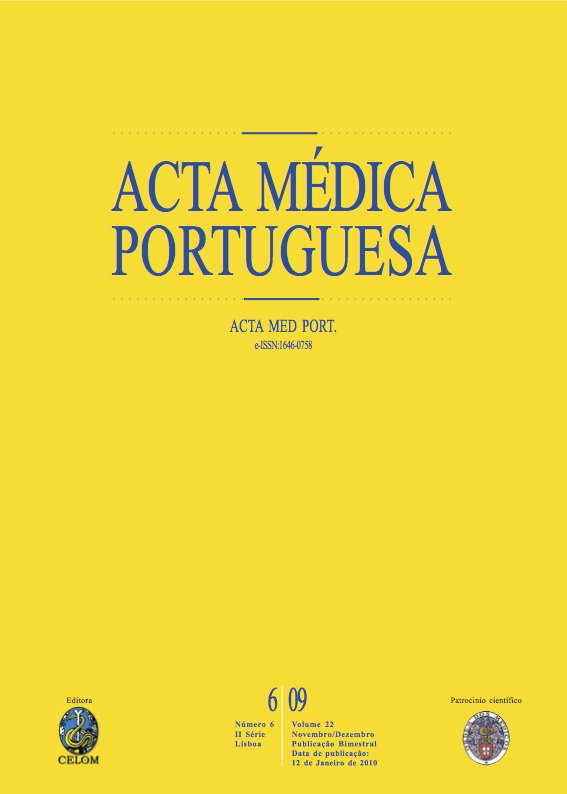A criança imigrante num serviçode pediatría: que problemas sociais?
DOI:
https://doi.org/10.20344/amp.1738Resumo
Hospital Fernando Fonseca is located in a suburban area that houses a great number of immigrants from developing countries.To characterize and compare the immigrant and portuguese pediatric populations which have been admitted and referred to Social Service department.Prospective study, from November 2004 to March 2005; demographic and socioeconomic data, diagnosis and social problems were analysed.A total of 35 children were observed, 22 (62.8%) immigrants, 42.9% of them less than 12-months old, with a predominance of female (54.5%), African origin (81.8%) and poor social-economical status (72.3%). The majority of parents (72.7%) came from a Portuguese Speaking African Country and 58.3% were illegal in our country. Most had a family doctor assigned (81.3%). Nineteen (87.5%) were admitted for organic disease and the social problem was detected later: poverty (9), negligence (7), physical aggression (3), abandon (2), psychological abuse (1), sexual abuse (1). Children were referred to Child Protection Committee (5) and Court (1); 6 children received economical support and 5 needed social support. When compared to the Portuguese population, social problems are more frequent in immigrant children (20% vs.7.5%; p =0,001), especially in African origin (81.8% vs.15.4%; p=0,00); low economic status (7.3% vs.55.6%; p =0.,423 ), poverty (37.5% vs. 26.6%; p=0.313) and physical aggression (13% vs. 8.3%; p =0.313) were more frequent in the immigrant and negligence being the most frequent social problem in the Portuguese population (33.3% vs. 29%; p =0.313).The growing number of immigrants and their social deficiencies raises important questions related to health care and social support for these families, to facilitate their social integration.Downloads
Downloads
Como Citar
Edição
Secção
Licença
Todos os artigos publicados na AMP são de acesso aberto e cumprem os requisitos das agências de financiamento ou instituições académicas. Relativamente à utilização por terceiros a AMP rege-se pelos termos da licença Creative Commons ‘Atribuição – Uso Não-Comercial – (CC-BY-NC)’.
É da responsabilidade do autor obter permissão para reproduzir figuras, tabelas, etc., de outras publicações. Após a aceitação de um artigo, os autores serão convidados a preencher uma “Declaração de Responsabilidade Autoral e Partilha de Direitos de Autor “(http://www.actamedicaportuguesa.com/info/AMP-NormasPublicacao.pdf) e a “Declaração de Potenciais Conflitos de Interesse” (http://www.icmje.org/conflicts-of-interest) do ICMJE. Será enviado um e-mail ao autor correspondente, confirmando a receção do manuscrito.
Após a publicação, os autores ficam autorizados a disponibilizar os seus artigos em repositórios das suas instituições de origem, desde que mencionem sempre onde foram publicados e de acordo com a licença Creative Commons









